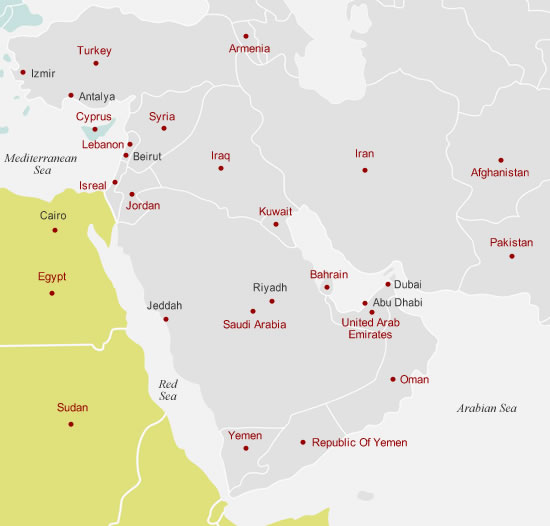Investing & Buying Property in the Middle East – Country Overview & Property Guide
The Middle East region offers a diverse property landscape, from luxury urban apartments in Gulf cities to historic and coastal estates across the eastern Mediterranean. This guide highlights investment trends, high-demand locations, and property types popular with international buyers and investors.
Top Middle East Countries for Investors
- Bahrain Property – Coastal villas and urban apartments with investment potential in a stable economy.
- Cyprus Property – Mediterranean lifestyle estates, holiday homes, and high-demand urban apartments.
- Egypt Property – Residential and resort properties along the Red Sea and in Cairo for long-term capital growth.
- Iran Property – Urban apartments and historical properties attracting niche investors.
- Iraq Property – Strategic urban developments and emerging markets for early-stage investors.
- Israel Property – Tel Aviv, Jerusalem, and coastal properties offering lifestyle and investment appeal.
- Jordan Property – Amman and resort destinations for stable and tourism-linked investments.
- Kuwait Property – Urban and high-end residential developments with strong investor interest.
- Lebanon Property – Beirut apartments, coastal villas, and boutique lifestyle estates.
- Oman Property – Muscat residences, luxury resorts, and lifestyle estates along the coastline.
- Palestine Property – Urban apartments and historical properties attracting niche buyers.
- Saudi Arabia Property – Riyadh, Jeddah, and Red Sea resorts with growing investment potential.
- Syria Property – Emerging market opportunities in urban and coastal regions.
- Turkey Property – Istanbul, Ankara, and coastal resort properties appealing to lifestyle and investment buyers.
- Qatar Property – Doha apartments, luxury villas, and high-yield investment options.
- United Arab Emirates Property – Dubai, Abu Dhabi, and Northern Emirates offer world-class urban and resort properties for international investors.
- Yemen Property – Coastal and historical properties for specialist investors seeking unique opportunities.
Why Invest, Buy or Rent in the Middle East
- Diverse property types from urban apartments to luxury resorts.
- Emerging and established markets offer both capital growth and rental income potential.
- FSBO and agent-assisted listings provide flexibility for buyers.
- Strong demand in key Gulf cities and Mediterranean hotspots.
- Access to regional investment insights and market data to guide decisions.
Key Considerations for International Buyers
Before investing, consider:
- Legal frameworks for foreign ownership and visa-linked property rights.
- Market trends, pricing, and rental yields in your target country.
- Property management and short-term rental regulations.
- Currency considerations and cross-border finance options.
- Working with experienced agents and FSBO listings via IPD.

Map of The Middle East showing all countries in relation to each other. Use this map to explore regional property markets on IPD.
Middle East Property Guides
- How to Buy Property in the Middle East
- How to Rent Property in the Middle East
- How to Sell Property in the Middle East
- Middle East Property Investment Insights
- Middle East Property Market Data
Ready to List Your Property?
Whether you own a luxury coastal villa, urban apartment, or countryside estate, list your property today on IPD to reach international buyers actively seeking real estate opportunities.
Owners - Why List a Property
Reach international buyers directly with your property listing. Listing is straightforward and designed to maximise exposure across global markets.
List Your PropertyAgents - Add Your Profile
Promote your agency, manage listings in one place, and connect with international buyers searching across multiple countries.
Add an Agent Profile